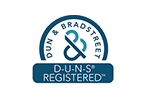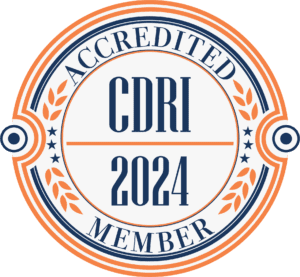Settling Accounts? Deciding What to Negotiate During a Debt Settlement
There seem to be hundreds of options available to help people get out of debt these days, and figuring out the right one can be more stressful than the debt itself. Luckily for those who choose to go the route of debt settlement, all of those options can be limited significantly. When it comes to settling accounts, the key to success is figuring out the best place to start. If you are one of the millions of others ready to get started, use these tips from us at Liberty Debt Relief to find the right starting place for you and your financial future.
Look at Interest Rates
When people are figuring out how they will get out of debt, they will often go straight to the overall numbers that they owe. They may see that they owe most of their money to credit cards, a personal loan, or maybe even private student loans, and choose one of those solely on that information. While looking at what you owe overall is crucial to getting out of debt, it is also extremely important to look at the interest rates for each of your debts.
Interest rates are what make or break just about any financial situation. When it comes to settling accounts, it is often significantly better for your outcome if you negotiate the account with the highest interest rate so that you can avoid having to pay heavy fees while you are getting out of debt. For example, if you owe $10,000 on a credit card with a 22 percent interest rate and you owe $11,000 on a personal loan with a 15 percent interest rate, it would be much better to negotiate the credit card debt. This is because, if you were to want to pay off your debt within five years, it would be cheaper for you to pay back a negotiated $6,000 with 11 percent interest rate than it would a negotiated $8,000 with a 15 percent interest rate.
Consider the Snowball Method
Just as with many things in life, sometimes the best way to motivate yourself to complete a task is to take small steps along the way. When it comes to settling some of your debt accounts, this can be achieved with the snowball method. With this strategy, you would choose to settle the accounts that you know you can pay off right away. Instead of choosing to settle a $30,000 debt that you will have to make monthly payments on, you could choose to settle a $5,000 debt instead that you can pay immediately. For many people, this is a sure way to stay motivated and encouraged to get out of debt in both the short and long terms.
This method can be applied in various ways. Some people may choose to do it regarding the total amount owed per account, others may prefer to do it by interest rate, and even more individuals will prefer to categorize by type of account, such as credit card or loan, or even by company if they have multiple debts under the same lender. Whichever categorization you choose, keep in mind that the goal with debt settlement is to get out of debt sooner rather than later.
Do Not Forget About the Rewards Programs
The beauty of settling debts over multiple accounts is that you can choose which ones you specifically need more assistance with. With so many credit cards having great cash back reward programs, it may be beneficial to look into settling the debts that do not offer similar incentives. If you refrain from using your credit card rewards until you need them, you could potentially rack up hundreds or even thousands of dollars that you can use to eliminate an outstanding balance with that company. It is always better to put those funds to use and not let them go to waste so that you can negotiate the terms of balances for which you do not have extra assistance.
Consider the Types of Debt You Owe
There are various types of debt out there. If you are considering settling accounts that you owe, there is a good chance you have your own varieties of debt. Some types, for example, are not even able to be settled, such as federal student loans, so you can automatically take those off the list when narrowing down the debts you will get settled.
Other types of debts, such as credit cards and department store credit cards, are usually easier to settle at a significantly lower cost. If you are torn between settling personal loans, business loans, credit cards, and department store cards, it is usually in your best interest to go for the cards.
Speak to an Expert
If you are ever in doubt about what it takes to begin settling your debt and credit accounts or just about finances in general, the best thing to do is to speak to a trusted professional. Companies such as Liberty Debt Relief will lay out all of your debt accounts, your income, and your budget to help you create a settlement plan that ensures you pay off your debts in a timely fashion. Sometimes all it takes is a little outside help to make sure you meet your goals.
Do not let your financial situation and the fear of debt take over your life. By following our tips, you can be well on your way to a debt-free future full of success








